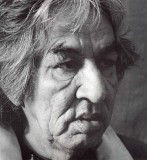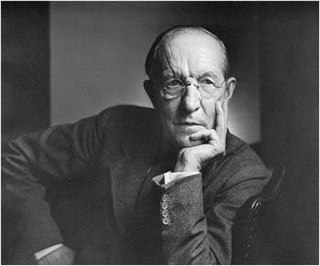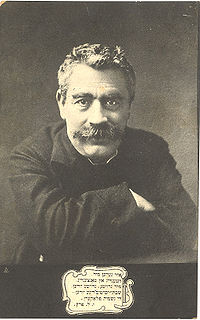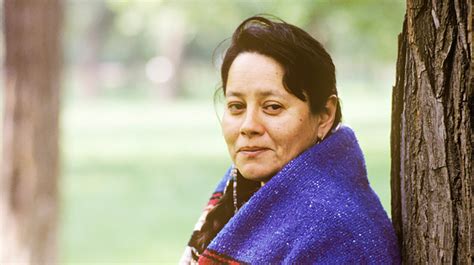A Quote by Norval Morrisseau
The Ojibways have great respect for the Bear. According to their legends, in the distant past the Bear had a human form and was in fact an ancestor of the Ojibways. Therefore he understands the Indian language and will never attack or fight any Indian if he is addressed properly.
Related Quotes
I had an Indian face, but I never saw it as Indian, in part because in America the Indian was dead. The Indian had been killed in cowboy movies, or was playing bingo in Oklahoma. Also, in my middle-class Mexican family indio was a bad word, one my parents shy away from to this day. That's one of the reasons, of course, why I always insist, in my bratty way, on saying, Soy indio! - "I am an Indian!"
To many, Indian thought, Indian manners; Indian customs, Indian philosophy, Indian literature are repulsive at the first sight; but let them persevere, let them read, let them become familiar with the great principles underlying these ideas, and it is ninety-nine to one that the charm will come over them, and fascination will be the result. Slow and silent, as the gentle dew that falls in the morning, unseen and unheard yet producing a most tremendous result, has been the work of the calm, patient, all-suffering spiritual race upon the world of thought.
My first American ancestor, gentlemen, was an Indian-an early Indian. Your ancestors skinned him alive, and I am an orphan. All those Salem witches were ancestors of mine. Your people made it tropical for them. . . . The first slave brought into New England out of Africa was an ancestor of mine-for I am a mixed breed, an infinitely shaded and exquisite Mongrel.
Yiddish, the language which will ever bear witness to the violence and murder inflicted on us, bear the marks of our expulsions from land to land, the language which absorbed the wails of the fathers, the laments of the generations, the poison and bitterness of history, the language whose precious jewels are the undried, uncongealed Jewish tears.
One of the nice things about looking at a bear is that you know it spends 100 per cent of every minute of every day being a bear. It doesn't strive to become a better bear. It doesn't go to sleep thinking, "I wasn't really a very good bear today". They are just 100 per cent bear, whereas human beings feel we're not 100 per cent human, that we're always letting ourselves down. We're constantly striving towards something, to some fulfilment
We don't know when our name came into being or how some distant ancestor acquired it. We don't understand our name at all, we don't know its history and yet we bear it with exalted fidelity, we merge with it, we like it, we are ridiculously proud of it as if we had thought it up ourselves in a moment of brilliant inspiration.







































